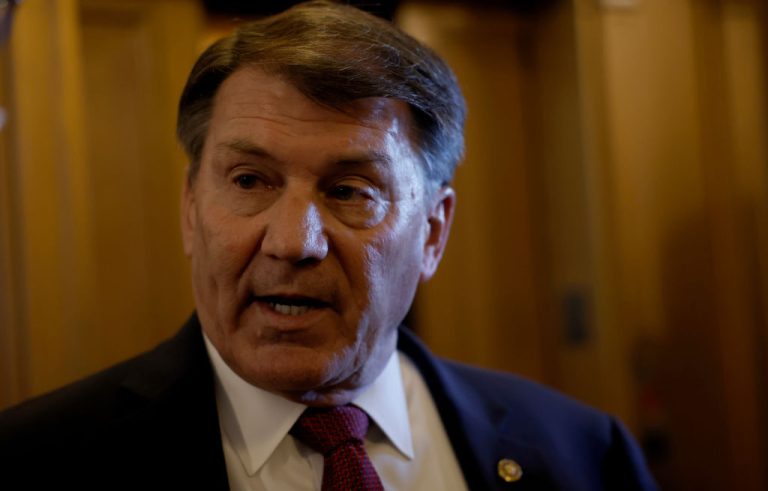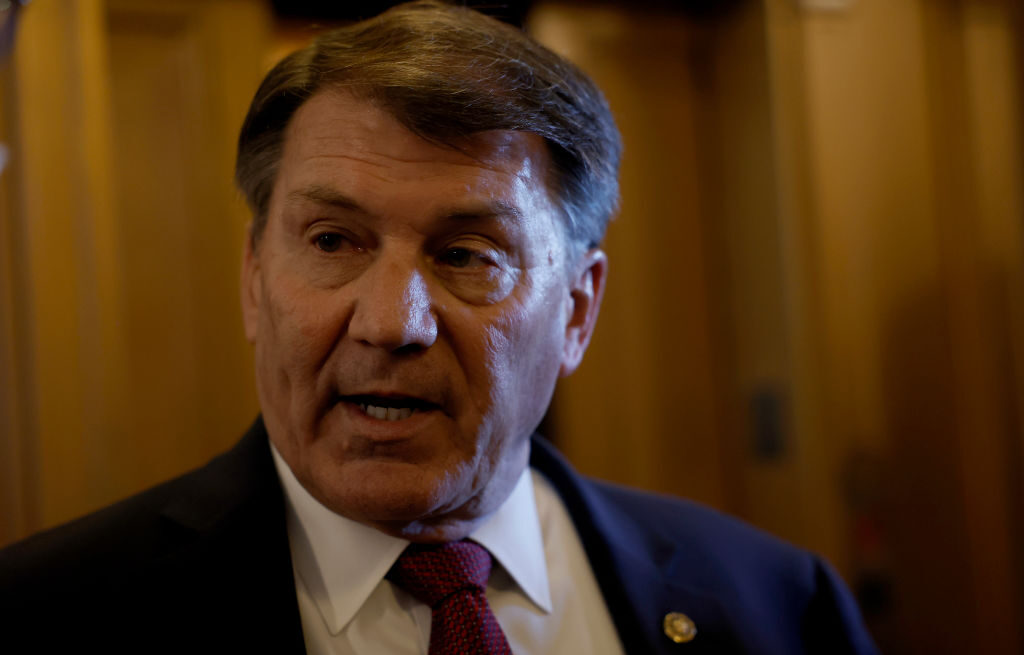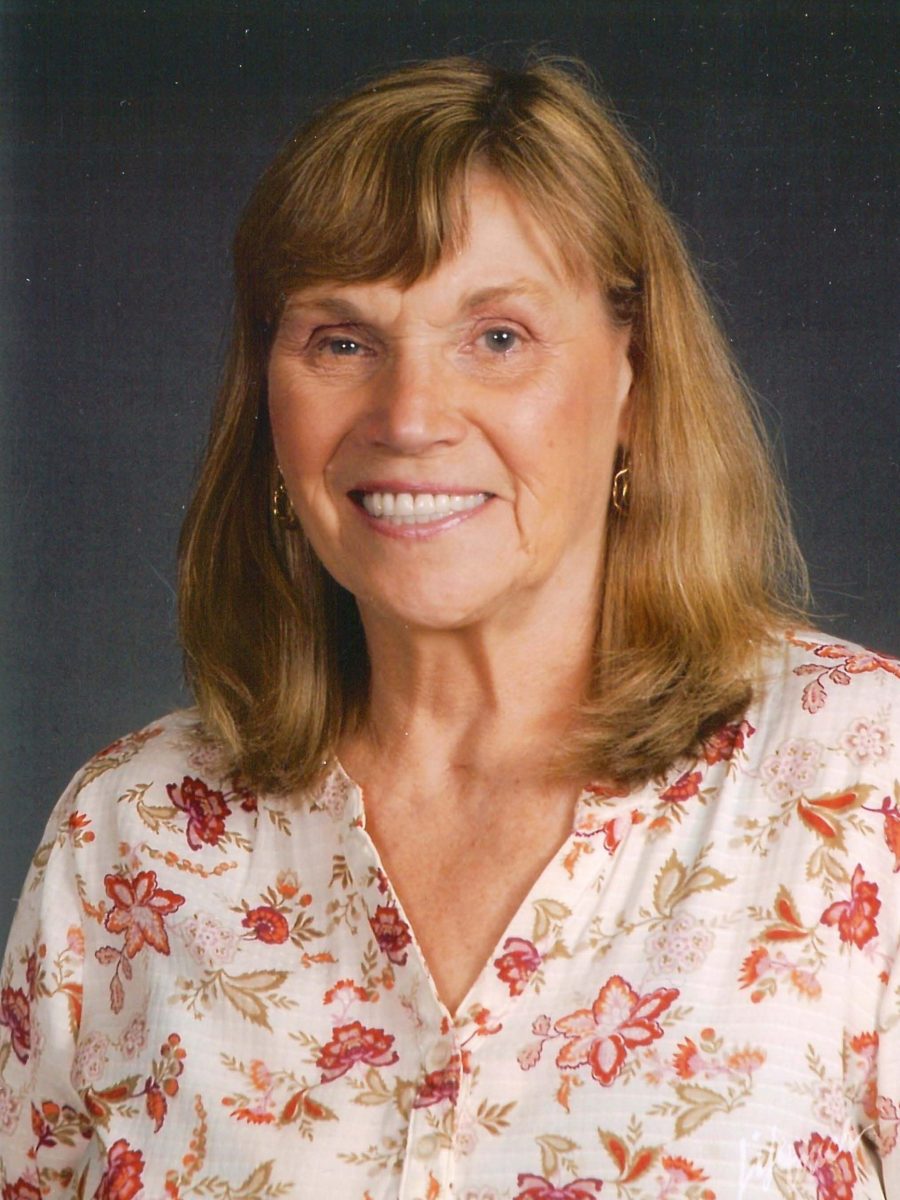WINNER, SD – An election law on the books since 1994 allows county commissions to overrule the county auditor by “experimenting with” a combined hand-counting and tabulated ballot counting system.
That statute allowed the Tripp County Commission in south-central South Dakota to order a hand count for Tuesday’s general election. It also allows the Fall River County Commission to hand count ballots for two of the county’s smallest precincts for three races.
The October decision makes Tripp the first South Dakota county in two decades to hand count election ballots and submit them to the state, said Kea Warne, director of the division of elections in the Secretary of State’s Office.
County auditors assume most responsibilities conducting elections, but codified law 12-17B-3 allows the “governing body” of any election at the school, city or county level to adopt, experiment or abandon automatic tabulating systems approved by the State Board of Elections.
Tripp County Auditor Barb Desersa said the Commission’s choice to exercise that authority has her department “drowning” in an effort to retrain staff and election workers on how to hand count ballots. Had commissioners not opted for a hand count, Desersa would use the state-certified tabulator machines she’s used since she was elected in 2014.
“Everybody’s lost their trust in the process. The auditor is in charge of the election, and I feel like I have no say,” Desersa said. “The 2020 election was busy with absentee ballots, but I feel like that is nothing compared to what this is. It’s more stressful.”
The situation is prompting auditors across the state and the Secretary of State’s Office to question the state statute and think about a potential remedy for the situation during the 2023 legislative session.
SD Canvassing Group influences county commissioners
The South Dakota Canvassing Group, which bills itself as a group of “concerned citizens working together to secure election integrity,” has sent members to speak at county commission meetings across the state since late 2021, including Minnehaha, Pennington, Lincoln, Brookings, Hanson, Fall River and Tripp counties
Such groups began to pop up in South Dakota after the 2020 election, said Sec. of State Steve Barnett, after then-President Donald Trump lost and claimed that the 2020 election was “stolen.” Trump filed more than 60 lawsuits to contest the results, but none have succeeded.
South Dakota county auditors have been mailed letters, emailed, approached in-person and called thousands of times from people in- and out-of-state questioning South Dakota’s voter registration and ballot counting processes.
“Tabulators have never been an issue; there aren’t modems in them and they aren’t connected to the internet,” Barnett said, adding that all tabulators are certified by the state and test-run before the election. “There is a small percentage of the public who want to believe the tabulators are connected to the internet and compromised, but they’re not.”
The canvassing group pushed for a hand count at the Oct. 11 Tripp County Commission meeting. Desersa and commissioners expected to only hear from a couple locals, the auditor said, but the small room was packed with about 30 people from in and outside Tripp County.
County commissioners conferred and unanimously agreed to a combination voting system after hearing the comments. The county will hand count its votes and submit that number to the state once tallied. After that, the auditor will run all votes through the county’s tabulator machine.
It will be a lengthy, intensive and redundant process, Desersa said, but county commissioners felt they needed to “audit” the election process.
“We agreed that we didn’t have a good audit, so nobody knew for sure if all the votes were being tabulated correctly,” said Joyce Kartak, vice chair of the Tripp County Commissioners.
Kartak declined to answer any other questions about the commissioners’ vote. The four other county commissioners did not respond to requests for comment.
Fall River County Commissioners were influenced by the same group and voted 3-2 to run an “audit.”
Out of its nine precincts, County Auditor Sue Ganje was allowed to select two of its smallest precincts to run an “audit” instead of hand-counting the entire county. Ganje has been Fall River County Auditor since 2005 and has been involved with elections since 1984.
There are just over 500 voters between the counties, so Ganje expects to hand count about 150 ballots on election night concerning the governor’s race, secretary of state race and a local race dealing with uranium.
The tabulator results from all precincts will still be the official count submitted to the state.
Ganje said she doesn’t know why a public demonstration she runs before each election or the test deck used to make sure the tabulators are working correctly are not enough to prove the machines are accurate for commissioners.
Hand-counting ballots can takes days, Tripp auditor says
Desersa expects roughly 1,050 ballots from county voters, which will take several hours — potentially days — to count and verify. There are about 3,500 registered voters in the county of 5,624. Desersa also serves as the Todd County auditor, which will still use a tabulator, so her department and volunteers will run another estimated 1,650 ballots on election night for the neighboring county
Esmeralda County in Nevada spent more than seven hours hand-counting just 317 ballots as part of its certification of the 2022 primary election this summer, according to the Associated Press. A 2018 study published in the Election Law Journal found ballot scanners to be more accurate than hand-counts as well.
The new rules left Desersa in a rush to find several new volunteer election workers and to train herself, staff and election workers on how to hand count votes.
“We had to come up with more people to hand-count because all of these 90-year-old election ladies don’t want to stay longer hours to count,” Desersa said.
Election workers will take each ballot and hand write a line in a poll book with the voter’s name and votes. After all votes are written out, they handed off to the accounting board, which will tally the votes at the end of the night.
Since The Help America Vote Act of 2002, most U.S. counties switched to tabulator machines. The act helped provide funds for states to improve election administration and replace outdated voting systems.
Tabulators have been South Dakota-certified ballot counting equipment and used within the state since 1987.
Desersa will run the ballots through the tabulator to compare the two methods. She believes it will prove tabulators are more accurate.
Interpreting current law and the legislative ‘remedy’
Tripp County State’s Attorney Zachary Pahlke believes the governing body of the 2022 election is the county commission rather than the sole county auditor.
“That’s the part where interpretation comes in,” Pahlke said. “It doesn’t specifically say ‘county commission’ or ‘auditor.’ It’s a generic term because there are different levels of government that the auditor isn’t always in charge of, like school board votes or municipalities.”
School districts and municipalities aren’t instructed to use tabulator machines. But for such elections, they’ll usually borrow county equipment or add their ballot questions at the bottom of the county ballot because it’s easier to use the tabulator.
“While the auditor is in charge of the election, it doesn’t mean that they’re in charge of every part of it, according to state law,” Pahlke said. “County commissioners set up precincts for elections in the county, which is one example of this.”
County auditors and Barnett are hoping to clarify this “conflict” during the 2023 legislative session, especially since the brunt of hand-counting votes falls on the county auditor’s office.
“The remedy for that would be to bring forth legislation to tweak that particular statute — switch it to say something like, ‘county auditors shall use tabulators to count election votes,’” Barnett said.
The current statute’s vague language means each of South Dakota’s 64 state’s attorneys can interpret the current law differently.
“The Legislature can definitely clarify or change this,” Pahlke said. “If they want it to be the county commission they could clarify that, but if they want to make it an auditor’s choice then they can say that.”












